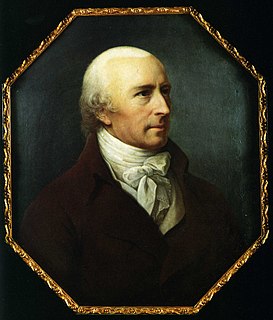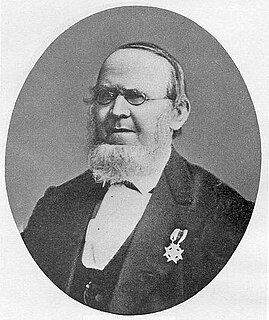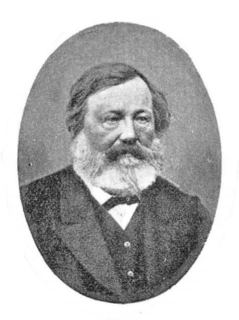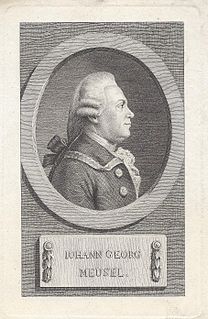 W
WJohann Christoph Adelung was a German grammarian and philologist.
 W
WJoachim Heinrich Campe was a German writer, linguist, educator and publisher. He was a major representative of philanthropinism and the German Enlightenment.
 W
WKonrad Alexander Friedrich Duden was a Gymnasium teacher who became a philologist. He founded the well-known German language dictionary bearing his name Duden, somewhat like Noah Webster in the United States.
 W
WErnst Johann Eitel or alternatively Ernest John Eitel was a German-born Protestant who became a notable missionary in China and civil servant in British Hong Kong, where he served as Inspector of Schools from 1879 to 1896.
 W
WJohann Peter Adolf Erman was a renowned German Egyptologist and lexicographer.
 W
WKarl Ernst Georges was a German classical philologist and lexicographer, known for his edition of Latin-German dictionaries.
 W
WHeinrich Friedrich Wilhelm Gesenius was a German orientalist, lexicographer, Christian Hebraist, Lutheran theologian, Biblical scholar and critic.
 W
WRudolph Goclenius the Elder was a German scholastic philosopher. Gockel is often credited with coining the term "psychology" in 1590, though the term had been used by Marko Marulić at least 66 years earlier. Gockel had extensive backing, and made significant contributions to the field of ontology. He extended the development of many ideas from Aristotle. Several of Gockel's ideas were published and built upon by later philosophers.
 W
WRev. Dr. Hermann Gundert was a German missionary, scholar, and linguist, as well as the maternal grandfather of German novelist and Nobel laureate Hermann Hesse. Gundert is chiefly known for his contributions as an Indologist, and compiled a Malayalam grammar book, Malayalabhaasha Vyakaranam (1859), in which he developed and constricted the grammar spoken by the Malayalis, nowadays; a Malayalam-English dictionary (1872), and contributed to work on Bible translations into Malayalam. He worked primarily at Thalassery on the Malabar coast, in Kerala, India. Gundert also contributed to the fields of history, geography and astronomy.
 W
WKarl Friedrich August Gützlaff, anglicised as Charles Gutzlaff, was a German Lutheran missionary to the Far East, notable as one of the first Protestant missionaries in Bangkok, Thailand (1828) and in Korea (1832). He was also the first Lutheran missionary to China. He was a magistrate in Ningpo and Chusan and the second Chinese Secretary of the British administration in Hong Kong.
 W
WJohann Ernst Hanxleden (1681-1732), better identified as Arnos Pathiri, was a German Jesuit priest and missionary, best known for his contributions as a Malayalam and Sanskrit poet, grammarian, lexicographer, and philologist. He lived in India for most part of his life and became a scholar of Sanskrit and Malayalam languages before authoring Puthen Pana, a poem on the life of Jesus Christ, Malayalam–Portuguese Dictionary, the first dictionary in Malayalam as well as two linguistic treatises, Malayalavyaakaranam and Sidharoopam.
 W
WChristian Gottlieb Jöcher was a German academic, librarian and lexicographer.
 W
WLeon Kellner was an English lexicographer, grammarian, and Shakespearian scholar. He was also a political activist and a promoter of Zionism.
 W
WGerhard Kittel (1888–1948) was a German Lutheran theologian and lexicographer of biblical languages. He was an enthusiastic supporter of the Nazis and an open antisemite. He is known in the field of biblical studies for his Theologisches Wörterbuch zum Neuen Testament.
 W
WFriedrich Kluge was a German philologist and educator. He is known for the Kluge etymological dictionary of the German language, which was first published in 1883.
 W
WAgathe Lasch was a German philologist. She was the first female professor of German studies in Germany, and the first female professor at the University of Hamburg. She founded the historical study of the Middle Low German language. As a Jew, Lasch was murdered during the Holocaust.
 W
WCarl Günther Ludovici was a German philosopher, lexicographer and economist. He edited a large part of the Grosses vollständiges Universal-Lexicon, a major German encyclopedia of the 18th century.
 W
WJohann Mattheson was a German composer, singer, writer, lexicographer, diplomat and music theorist.
 W
WJohann Georg Meusel was a German bibliographer, lexicographer and historian.
 W
WHeinrich August Pierer was a German lexicographer and publisher known particularly for his Universal-Lexikon der Vergangenheit und Gegenwart, a multi-volume encyclopedic dictionary first published in 1835–6. It went through a number of editions, both during his lifetime and later.
 W
WAndreas Reyher was a German teacher, education reformer and lexicographer.
 W
WDaniel Sanders was a German lexicographer of Jewish parentage. He is famous for lexicons and dictionaries.
 W
WImmanuel Johann Gerhard Scheller was a German classical philologist and lexicographer.
 W
WJohann Gottlob Theaenus Schneider was a German classicist and naturalist.
 W
WFriedrich August Gottlob Schumann was a German bookseller and publisher. His best-known work is the 18-volume Lexicon of Saxony, which was completed after his death by Albert Schiffner. He wrote Junker Kurt von Krötenstein's verliebte Heldenfahrt under the pen name of Legaillard.
 W
WKurt Heinrich Sethe was a noted German Egyptologist and philologist from Berlin. He was a student of Adolf Erman. Sethe collected numerous texts from Egypt during his visits there and edited the Urkunden des ægyptischen Altertums which is a standard catalogue of Ancient Egyptian literature and text.